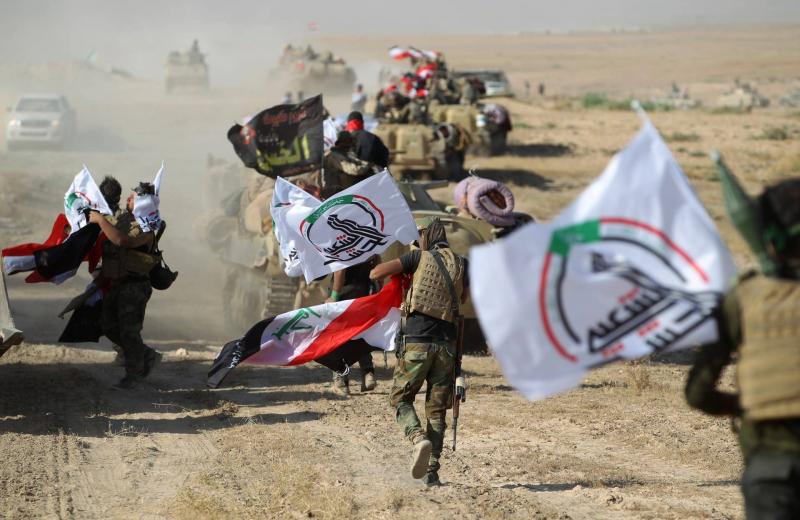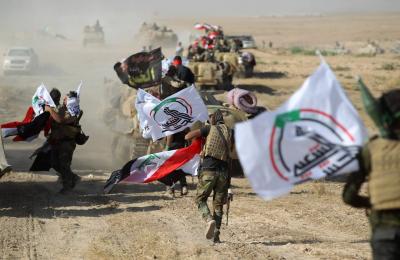Politicians and observers tend to believe that Iraq is among the most anxious countries in the region if Iran and its proxies respond to Israel, especially given that its skies and lands will likely serve as the main and perhaps only corridor for Iranian missiles. On the ground, it seems that most Iraqi citizens are indifferent to a potential war between Iran and Israel; however, an open conflict is occurring on social media between those opposing Tehran, who downplay the significance and seriousness of the expected response against Israel, and its supporters, who believe that Iran will deliver a severe punishment.
A political source close to the "Coordination Framework" believes that "Iraq, due to its proximity to Iran and relative closeness to Israel, will be the most affected country by the mutual war between Tehran and Tel Aviv, noting that its ability to deter and avoid the consequences of this is almost nonexistent." The source told “Asharq Al-Awsat” that “the Iraqi territory would be vulnerable in the event of war, as occurred during Iran's attack on Israel in mid-April, when all its missiles flew over Iraqi airspace.”
The political source adds that “any Iranian missile attack will occur in two ways: either through guided missiles crossing over Iraqi territory, or through missiles fired by Iranian-affiliated factions from within this territory. In both cases, it will be very difficult for the government to respond, given its lack of control over the factions or the ability to deter them.” The source expressed concern over “the possible reaction of the factions, which might launch broader attacks, even if not requested to do so.”
The source continues that “the outbreak of an uncontrolled large-scale war might drive Israel to target vital interests within Iraqi territory directly. We have heard threats from Israel to target the Basra ports, as it did before with the Yemeni port of Hodeidah, if Iraqi factions engage in open conflict with it on behalf of Iran.”
Former diplomat Ghazi Faisal agrees with the “limited ability of the Iraqi government” to avoid the consequences of a potential war between Iran and Israel. He states to “Asharq Al-Awsat” that “Baghdad plays a neutral role amidst the regional crisis and the ongoing wars between Israel and some countries in the region, especially Iran.” He adds that “Iraq is fundamentally a neutral country in terms of government policy. The declaration of war and peace—constitutionally—is linked to a decision by Parliament. In this situation, the Iraqi government monitors the situation and tries to urge the factions and Iran not to involve it in the war, whether it breaks out broadly or even in a limited manner.”
While Baghdad is pursuing certain individuals from the factions who previously targeted the Ain al-Assad base, the former diplomat notes, “it does not have authority over the armed factions linked to the (Iranian Guard), and it is incapable of deterring them despite its neutral position, indicating that it is not interested in any war that may occur.”
Faisal believes that “the Iraqi government is pushing to avoid war while monitoring events, while affirming its steadfast Palestinian rights; however, the unfortunate reality is that the Iraqi position will not be unified in the event of war due to the complexities associated with the factions' relationship with Tehran.”
Contrary to the neutral and war-avoiding governmental stance, the so-called “Iraqi Resistance Coordination” declared its supportive stance towards Tehran the day before yesterday, aligning with the Iraqi government’s efforts to avoid war. It stated in a statement that it “is not bound by any restrictions if the forces of the American occupation get involved again in targeting our people in Iraq or exploiting its airspace to execute attacks against the Islamic Republic of Iran; our response then will not be limited.”




